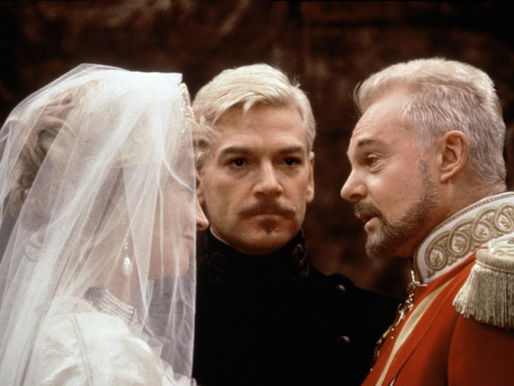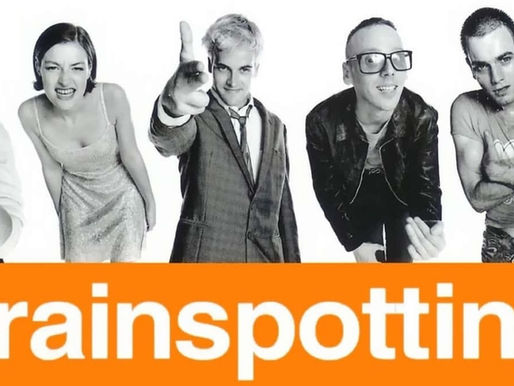top of page
Search
Drama
Classic Drama Films from 1930 - 1999


Carlito's Way (1993)
Brian De Palma’s Carlito’s Way (1993) is a stylish, operatic crime drama that blends the director’s signature flair for cinematic bravado with a surprisingly soulful story of redemption. With a powerhouse performance by Al Pacino and a sharp supporting turn from Sean Penn, the film stands as one of the most underrated entries in the gangster genre—a meditation on past sins, impossible dreams, and the gravitational pull of the streets.

Soames Inscker
3 min read


Interview with the Vampire (1994)
Neil Jordan’s Interview with the Vampire is a lush, brooding, and provocative gothic horror film that revitalized the vampire mythos for a new generation. Adapted from Anne Rice’s bestselling 1976 novel, the film offers a moody and philosophical exploration of immortality, moral decay, and loneliness, all wrapped in lavish 18th- and 19th-century decadence. Stylish and atmospheric, it remains one of the most distinctive vampire films ever made.

Soames Inscker
3 min read


Death and the Maiden (1994)
Roman Polanski’s Death and the Maiden is a chilling, psychologically taut drama that unfolds almost entirely in one isolated location, yet grips like a vice. Adapted from Ariel Dorfman’s acclaimed 1991 stage play, the 1994 film plunges into the dark terrain of trauma, justice, and moral ambiguity in a post-dictatorship society. With only three characters and minimal action, it builds unbearable tension through dialogue, silence, and psychological warfare.

Soames Inscker
3 min read


Before Sunrise (1995)
Richard Linklater’s Before Sunrise is a quietly enchanting, deeply intelligent romantic drama that redefined what a love story could be in modern cinema. Released in 1995, the film takes the simplest of premises—a young man and woman meet by chance on a train and spend a single night walking and talking through Vienna—and spins it into something lyrical, philosophical, and emotionally resonant.

Soames Inscker
3 min read


Dead Again (1991)
Kenneth Branagh's Dead Again is a stylish, twist-laden neo-noir thriller that doubles as a Gothic romance, drawing on classic Hollywood influences while showcasing Branagh’s flair for ambitious storytelling. Combining reincarnation, murder, mistaken identity, and fate, the film straddles genres and eras, delivering a visually arresting and emotionally satisfying mystery that feels both old-fashioned and fresh.

Soames Inscker
4 min read


Much Ado About Nothing (1993)
Kenneth Branagh’s 1993 film adaptation of William Shakespeare’s Much Ado About Nothing is a joyous, sun-drenched celebration of language, wit, and romance. Bursting with energy, humor, and visual splendor, the film manages to remain faithful to the Bard’s text while also making it accessible to modern audiences. It is one of the finest Shakespearean adaptations committed to film—brimming with verve, intelligently cast, and masterfully directed.

Soames Inscker
4 min read


Barton Fink (1991)
Barton Fink, the surreal and haunting 1991 film by Joel and Ethan Coen, is a genre-defying work that blends dark comedy, psychological horror, satire, and metaphysical drama into one of the brothers’ most enigmatic and compelling creations.

Soames Inscker
3 min read


The Iron Giant (1999)
The Iron Giant, directed by Brad Bird in his feature film debut, is one of the most emotionally resonant and artistically accomplished animated films of the 1990s. Released in 1999 by Warner Bros., the film is a stirring blend of science fiction, Cold War-era paranoia, and heartfelt storytelling. Though it initially struggled at the box office, The Iron Giant has since earned its rightful place as a modern animated classic, beloved for its sincerity, artistry, and powerful me

Soames Inscker
3 min read


Falling Down (1993)
Falling Down, directed by Joel Schumacher and released in 1993, is one of the most provocative and polarizing films of the 1990s. With its blend of dark satire, social commentary, and psychological drama, the film offers a disturbing yet compelling portrait of urban alienation and middle-class rage.

Soames Inscker
3 min read


In the Line of Fire (1993)
In the Line of Fire, directed by Wolfgang Petersen, is a gripping political thriller that combines taut suspense, character depth, and old-school star power. Released in 1993, the film is a showcase for Clint Eastwood, who delivers one of his most compelling performances of the decade, portraying a flawed yet determined Secret Service agent haunted by past failure.

Soames Inscker
3 min read


Hamlet (1996)
Kenneth Branagh’s Hamlet (1996) is a landmark in Shakespearean cinema. A four-hour epic that adapts the full, unabridged text of William Shakespeare’s most famous tragedy, this version is as ambitious as it is sumptuous.

Soames Inscker
4 min read


The Talented Mr Ripley (1999)
Elegant, haunting, and psychologically complex, The Talented Mr. Ripley (1999) is a chilling exploration of identity, obsession, and moral ambiguity. Directed by Anthony Minghella and adapted from Patricia Highsmith’s 1955 novel, the film is both a sun-drenched European travelogue and a deeply unsettling psychological thriller.

Soames Inscker
4 min read


Die Hard With a Vengeance (1995)
Reuniting director John McTiernan with star Bruce Willis, this third entry in the franchise reinvents the formula as a gritty, high-octane urban action-thriller set across the sprawling chaos of New York City. With razor-sharp pacing, explosive set-pieces, and the electric chemistry between Bruce Willis and Samuel L. Jackson, Die Hard with a Vengeance is not just a worthy sequel—it’s arguably the most ambitious film in the series.

Soames Inscker
4 min read


Cape Fear (1991)
Martin Scorsese’s 1991 remake of Cape Fear is a brooding, nightmarish psychological thriller that transforms the classic 1962 film into something more visceral, provocative, and morally complex. With powerhouse performances—especially from a terrifying Robert De Niro—and stylish, Hitchcockian direction, Scorsese reinvents the material as a gothic tale of vengeance, guilt, and family disintegration. It’s a film that simmers with menace, pushing the boundaries of suspense and m

Soames Inscker
4 min read


In the Name of the Father (1993)
In the Name of the Father is a powerful, emotionally charged courtroom drama and political thriller that dramatises the real-life miscarriage of justice involving the “Guildford Four.” Released in 1993 and directed by Jim Sheridan (My Left Foot, The Field), the film stars Daniel Day-Lewis in one of his most impassioned performances as Gerry Conlon, a man wrongly imprisoned for an IRA bombing he did not commit.

Soames Inscker
4 min read


Casino (1995)
Released in 1995, Casino marks another towering achievement in the crime genre by director Martin Scorsese. Based on the non-fiction book Casino: Love and Honour in Las Vegas by Nicholas Pileggi (who co-wrote the screenplay with Scorsese), the film offers a blistering, operatic chronicle of greed, ambition, betrayal, and the slow decay of organised crime’s influence in Las Vegas.

Soames Inscker
4 min read


The Lion King (1994)
Directed by Roger Allers and Rob Minkoff, Disney’s The Lion King (1994) is a landmark in animated filmmaking—an emotionally rich, visually stunning, and musically unforgettable tale of loss, growth, and redemption.

Soames Inscker
3 min read


Ed Wood (1994)
Tim Burton’s Ed Wood is a beautifully strange and unexpectedly poignant black-and-white biopic that tells the story of Edward D. Wood Jr., the eccentric filmmaker often labelled “the worst director of all time.” Far from mocking its subject, Burton’s film is a tender, lovingly crafted tribute to artistic passion, no matter how misdirected it might be.

Soames Inscker
3 min read


Boogie Nights (1997)
Paul Thomas Anderson’s Boogie Nights is a kaleidoscopic, exhilarating, and ultimately tragic chronicle of the 1970s porn industry, told through the eyes of a naive young man who finds stardom—and later collapse—in the adult film world.

Soames Inscker
4 min read


Trainspotting (1996)
Danny Boyle’s Trainspotting is a visceral, electrifying plunge into the lives of heroin addicts in 1980s Edinburgh—a cinematic bullet train fueled by nihilism, dark comedy, and manic energy. Adapted from Irvine Welsh’s cult novel, the 1996 film is not merely about drug use; it’s about escape, identity, friendship, and the painful search for purpose in a world stripped of opportunity.

Soames Inscker
3 min read
bottom of page


